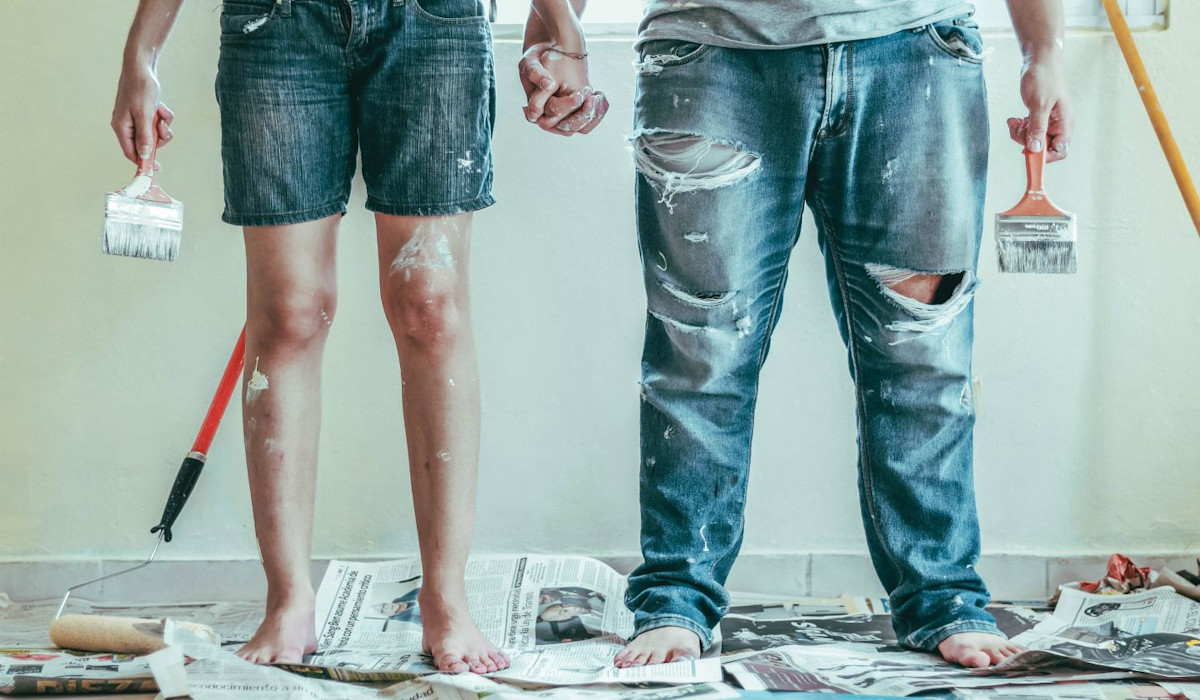6 Newbie Mistakes to Avoid When Getting a Mortgage

Does the mortgage process have you all kinds of overwhelmed? If you’re a first-time homebuyer, chances are, you have plenty of questions – and rightfully so, since buying a home is one of the most important purchases of your life.
There are some significant factors to consider as you begin your search for the perfect home. No need to let that stress you out. The best ways to avoid newbie mistakes is to be prepared and educate yourself on the home buying process. Below, are the top six mistakes you should avoid when getting a mortgage.
Mistake 1: failing to check your credit
There are so many things that that rank high in terms of importance, but realistically, having good credit is a big factor to obtaining a mortgage. Start by first educating yourself on what impacts your credit score.
Then, carefully reviewing your credit report – you can get one free from each credit reporting agency annually. You’ll want to check for any erroneous information, in case you find issues that need to be corrected. And next, review your credit score to see if you need to improve your credit before beginning the mortgage process. If your credit needs work, it’s best to take some time to whip it into shape so you’ll qualify for the lowest interest rate – which can save you a lot of dough over the life of your mortgage loan!
Mistake 2: not playing the comparison game
When it comes to obtaining a mortgage, not all lenders are created equal. Each lender has different mortgage rates, so shopping around for the best deal can save you a big chunk of change. When we were planning to buy our first home, we went to our primary bank first, thinking we’d get a good rate there, but as it turned out, we got a much better interest rate by working directly with a local mortgage banker. Also, you’ll have several different loan types to choose from – these vary widely and have a huge impact on the size of your monthly mortgage payment.
Mistake 3: not lining up financing first
It’s so easy to find yourself casually browsing Zillow and falling in love with the “perfect” home. If I’m being honest, I did this when we were planning to buy our first home. But, one of the biggest disservices you can do to yourself is to become attached to a home, only to realize during the mortgage application process that you can’t afford it.
One of the smartest things you can do as a new homebuyer is to meet with a mortgage lender first–before you do anything else–to find out how much house you can afford.
In many real estate markets, sellers are looking for buyers who have already received a pre-approval from a lender. Taking this step as a buyer paints a detailed picture of your finances, allowing your lender to tell you the specific amount you’re approved for and giving the seller peace of mind that you’ll be able to purchase the home if they decide to move forward your offer.
Mistake 4: not saving enough for a down payment
Perhaps your lender said you qualify for a $200,000 home, so you begin looking at homes right around that amount – but don’t forget to consider the down payment that you’ll need to have at closing. At a minimum, for a $200,000 FHA loan (with 3.5% down), you would need to bring $7,000 plus additional closing costs and fees in cash to the table in order to close on the home. If you don’t have that amount of money stashed away, take some time to build up your savings before you start your home search.
One way to plan savings for a down payment is to automatically deposit into your savings account. Because it’s more motivating to save when you have money in savings already, put more than 20% of your paycheck into savings the first few months, then reduce down to 20% and have it go into savings automatically.
Mistake 5: not preparing for additional fees
In addition to the cash you’ll need for a down payment, there are other fees you’ll be responsible for in order to close on your new home. Some of these fees may be negotiable, but many are fixed.
Be prepared to shell out cash for the appraisal, title, insurance, up-front real estate taxes, lender fees, and more. Several days before closing, you’ll receive a closing disclosure, which breaks down the terms of your loan, all final costs expected at closing and the details of who pays and who receives money at closing.
Mistake 6: making big purchases before closing day
You’re probably so excited about moving and planning how you’re going to decorate your new home – but before you go on a spending spree, put that credit card away!
Your finances will be thoroughly analyzed during the underwriting process, and your lender will expect your financial situation to remain largely the same until closing day.
This goes for cash purchases, too – your credit-worthiness is based on your overall financial picture, so if you drop a big chunk of change from your bank account before closing, it can very well be detrimental to the home-buying process. As hard as it may be, avoid spending money on things outside of your necessities (groceries, gas, utilities, etc.) until you’ve closed on your new home. If you can avoid these big mistakes when buying a home, the mortgage process should be smooth sailing! Be sure to check out the our website for additional mortgage resources to help you start your journey to homeownership.
A pre-approval is not a guarantee of a final loan approval. Any material change to credit worthiness, employment status, or financial position may impact final loan approval. All loans subject to satisfactory appraisal, clear property title, and final credit approval.